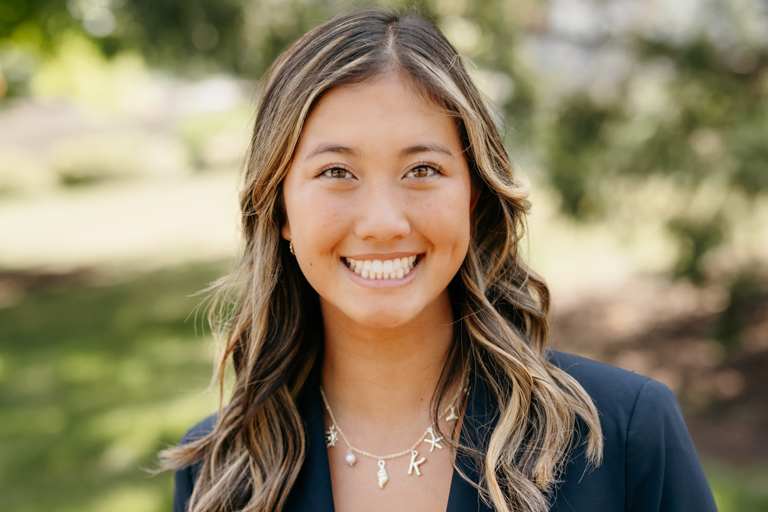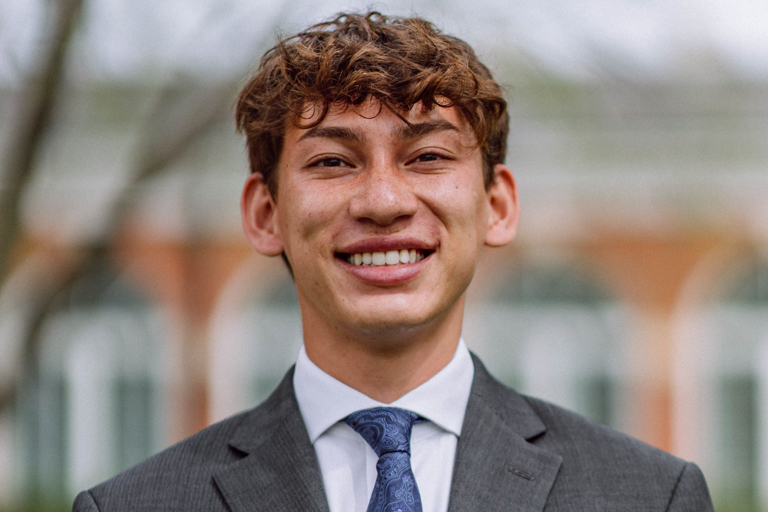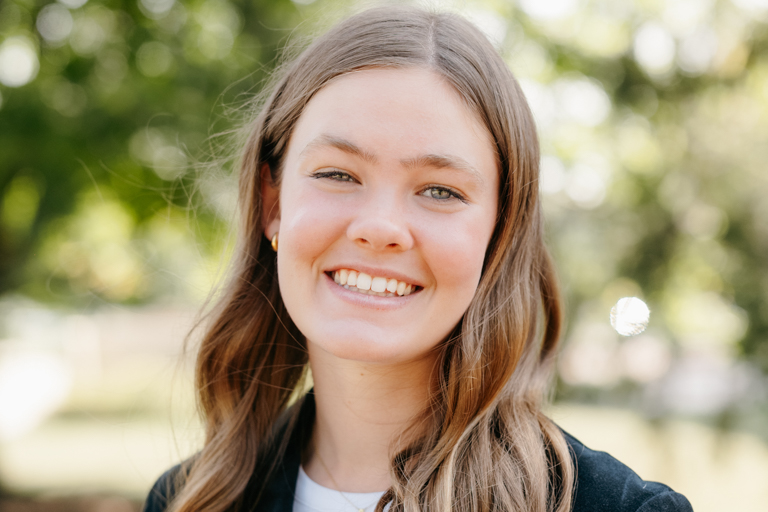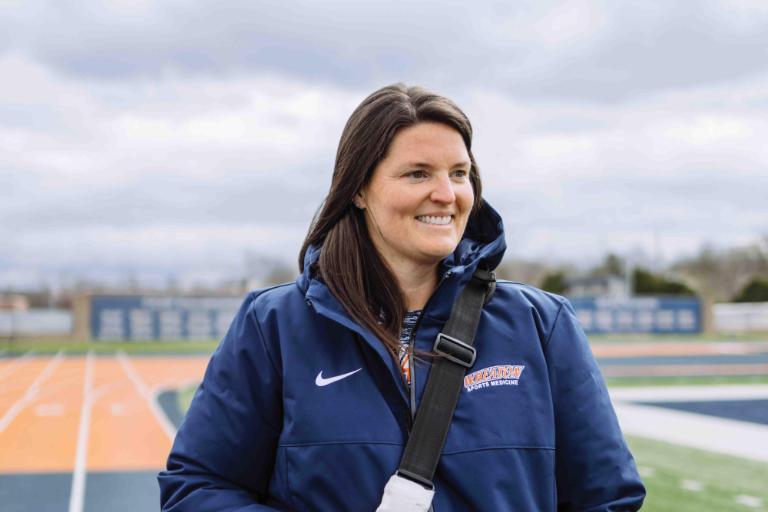A Legacy of Global Service, Transformation, and Love
Celebrating 50 Years of the Billy Graham Scholarship Program
Words: Liuan Chen Huska ’09
Photos: Courtesy of Featured Individuals
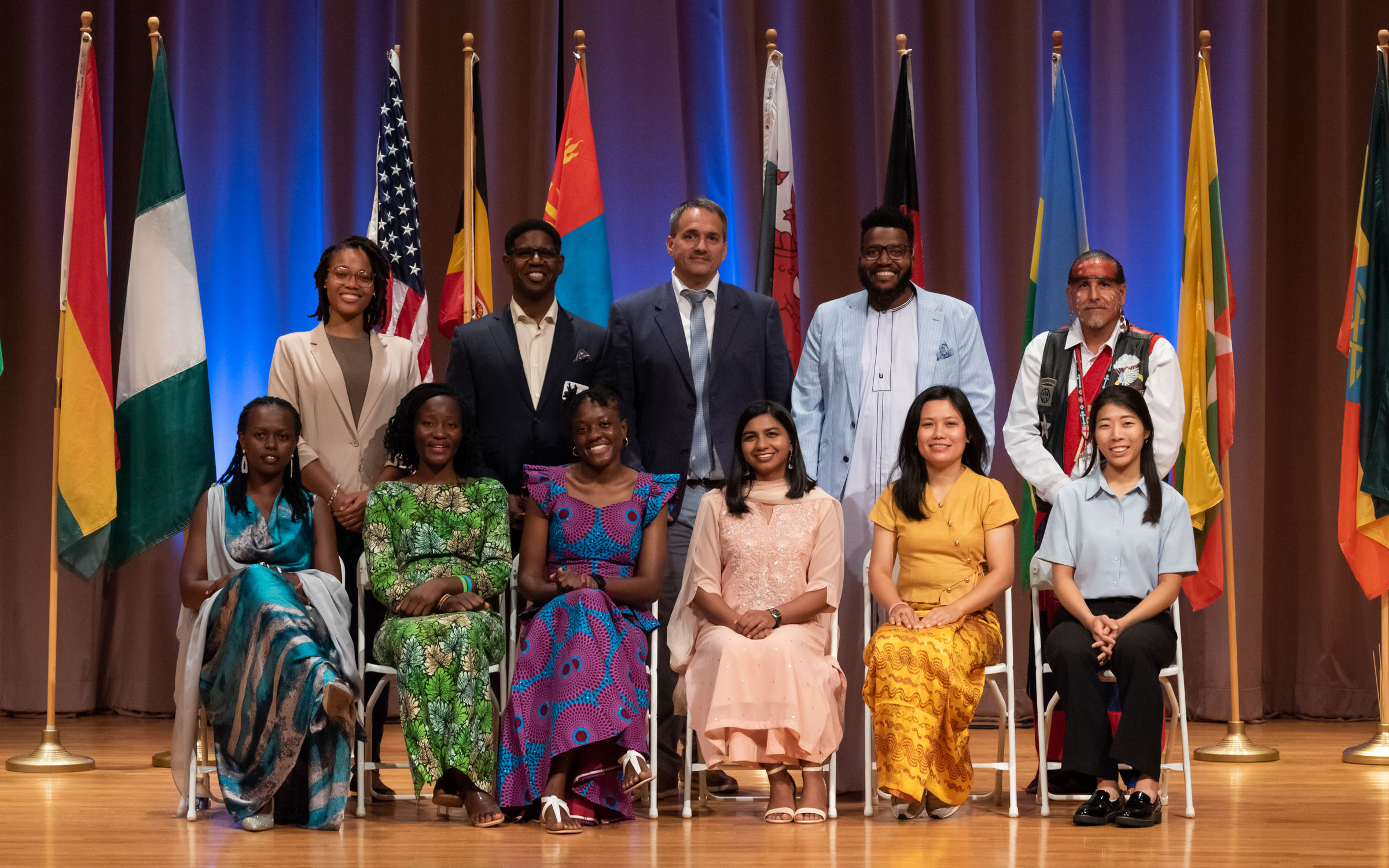
The incoming class of Billy Graham scholars in 2024.
Via Dolorosa, East Jerusalem, June 4, 1967. Tensions between Israel and Egypt were boiling over as Berjoohi Avedissian Katanacho gave birth to her third child, a son named Yohanna. The next day, Israel launched airstrikes against Egypt, beginning the Six-Day Arab-Israeli War. By the time mother and child were ready to leave the hospital, bombs were falling on Jerusalem. Issa Katanacho risked his life to bring his wife and son home. On their two-kilometer journey back, a neighbor, Yousef Qamar, died in an explosion.
“I was born in a context of war,” said Yohanna Katanacho M.A. ’96. Over the past century in Israel, he notes, two to three wars have taken place every decade. As a Palestinian growing up in Israel, Katanacho believed that religion was a myth, Marx’s “opiate of the people.”
But during his university studies, Katanacho had a strange experience. He woke up at 3 a.m. one day hearing the sounds of church bells ringing and couldn’t move his body. For two hours, he struggled to free himself and thought of every logical explanation for his paralysis. Finally, he said, “God, if this is from you, free me. I promise to look for you.” At that moment, he was able to move.
This began Katanacho’s search for God, whom he discovered was the antidote to the hatred and violence around him. At a small evangelical church in East Jerusalem, he accepted Christ. He started a Bible study at the university where he previously promoted atheism. He read the Sermon on the Mount, troubled by Jesus’s instructions to love his enemies.
One evening, Katanacho walked home with copies of flyers in Arabic about a church event. There was a ban against distributing political flyers. Crossing the Damascus Gate, Israeli soldiers raised machine guns at him. Without thinking, Katanacho put his hand on his heart and blurted out, “I love you.” The soldiers lowered their guns.
Love, Katanacho realized, was not a feeling. It was an action, an entire way of living. Katanacho prayed God would guide him to more training into what it meant to grow in love of God and neighbor. He found his way to Wheaton College, supported by a scholarship from the Billy Graham Scholars Program.
Cloud of Witnesses
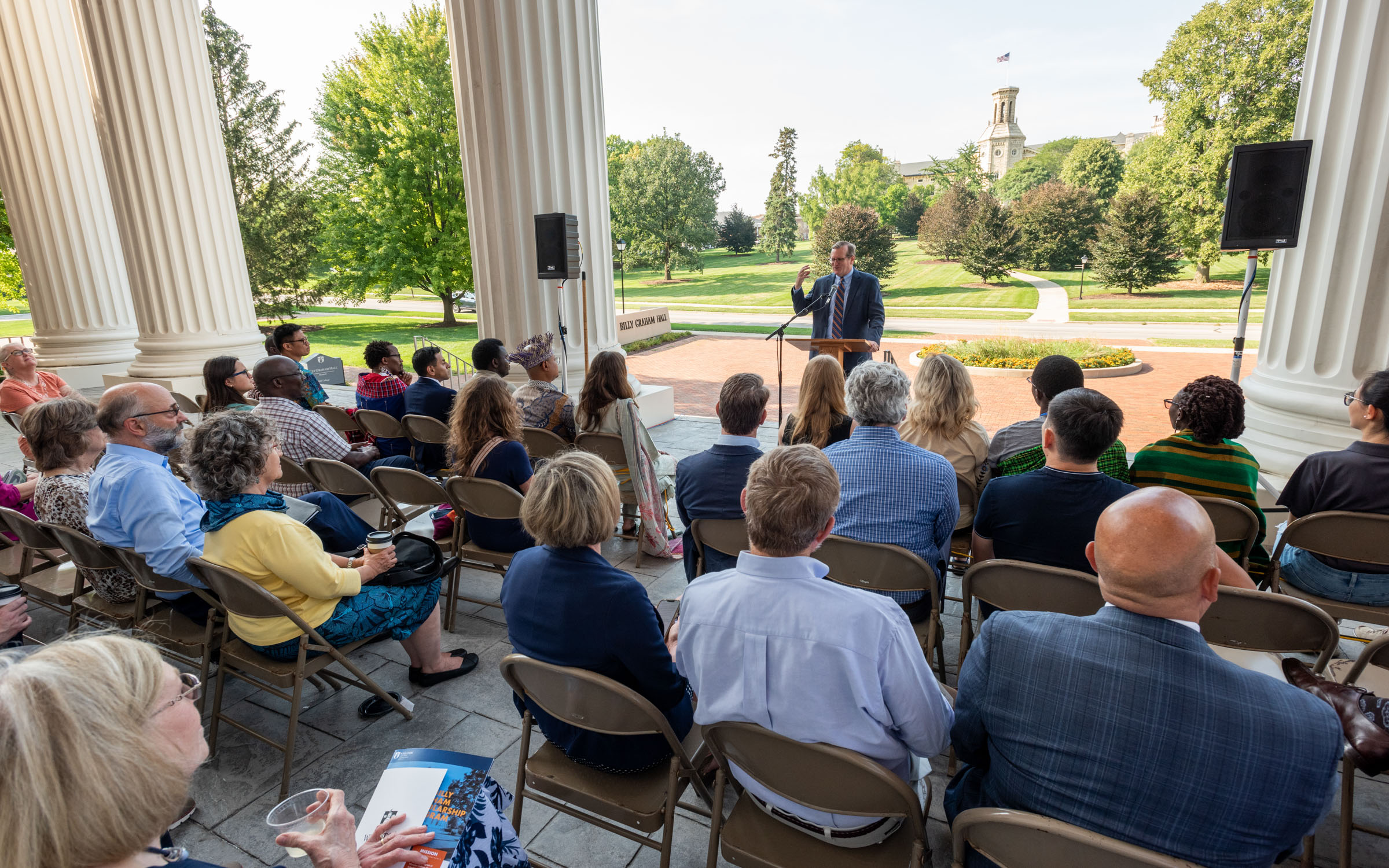
President Philip Ryken ’88 welcomes incoming scholars in 2023.
For 50 years, the Billy Graham Scholarship Program has paved the way for around 1,200 students to complete master’s programs at Wheaton College. The program aims to train leaders for the Lord’s service worldwide, preparing students to return to their ministries and unique contexts better equipped. Billy Graham Scholars have touched over 130 countries.
While the Billy Graham Center building was still under construction, founders envisioned a scholarship program that would support the Center’s mission as a hub for evangelism, research, and inspiration. To truly serve the global church, they realized, international Christian leaders would need financial support to come study at Wheaton.
The 1975 inaugural class of Billy Graham Scholars included four students from Australia, Kenya, Nigeria, and South Africa. Carolyn Jane Nelson served as the first coordinator until her retirement in 1995. “Jane Nelson undergirded the whole program in prayer,” said April McLaughlin M.A. ’20, current program coordinator since 2012. McLaughlin’s predecessor, Diane Sweringa, emphasized that the program “was so much more than just providing finances for the students,” McLaughlin said. “It was a ministry.”
Nelson began a tradition of Thursday morning prayer during which scholars gather to fellowship and pray for one another and God’s work worldwide. Since COVID-19, they have held the gathering online in addition to in-person, allowing alumni on multiple continents to reconnect.
“It’s really remarkable how Jane Nelson pulled off this ministry in the early days of snail mail, typewriter, carbon paper, and interoffice memos,” said McLaughlin. Students mailed in handwritten applications and were notified of awards via wires and telegrams. The program office still keeps a collection of stamps from those days, from countries all over the world.
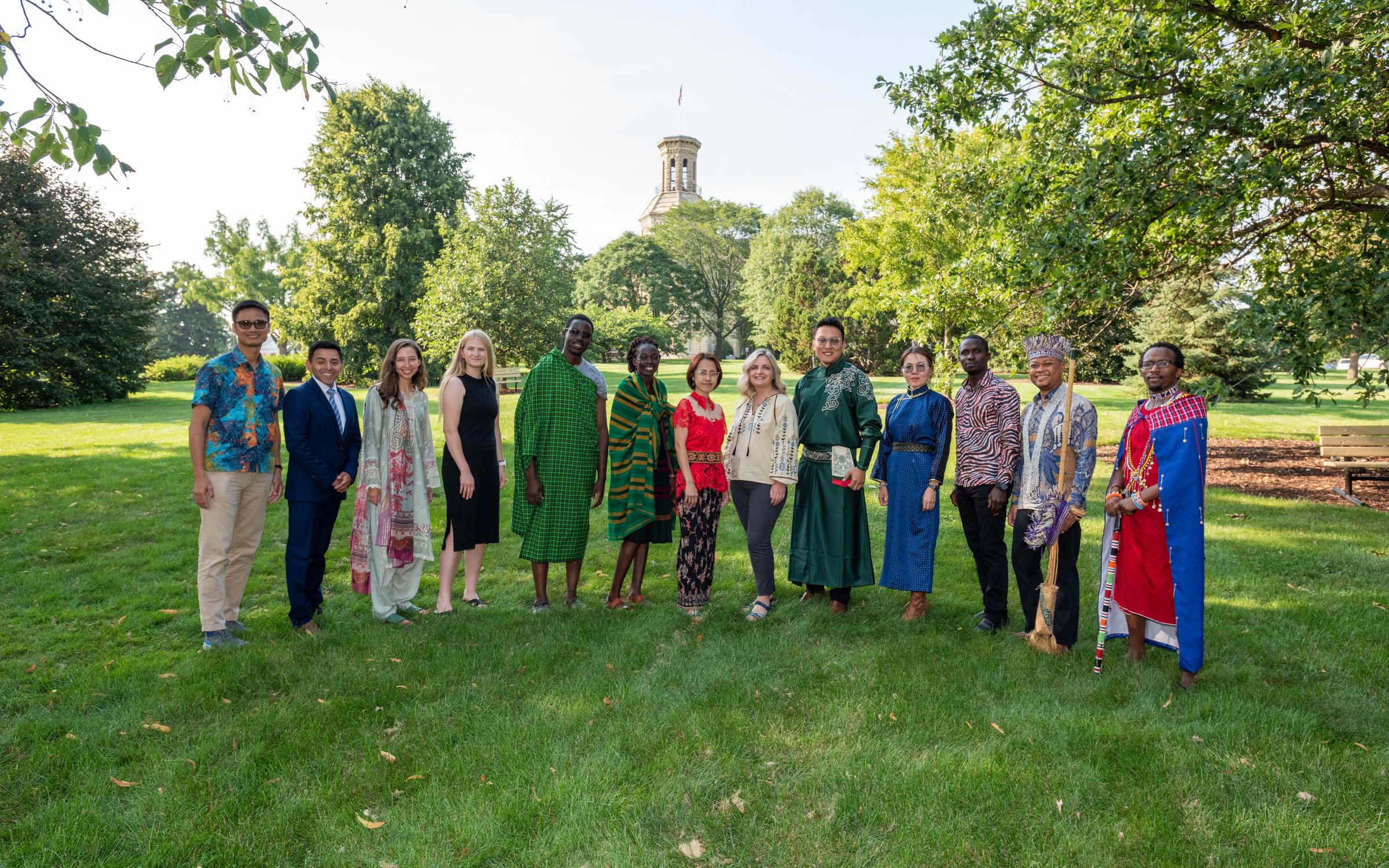
The incoming class of scholars in 2023.
The College now offers over 20 scholarships each year under the Billy Graham Scholarship program. Although the original program was for international Christian leaders, over the years donors provided additional endowed funds, named after notable missionaries and Christian leaders, to expand offerings. The Walter H. and Ethel H. Smyth Fund in 1983 began financially assisting experienced missionaries. In 1995, the Kenneth T. Wessner Fund opened up the program to domestic ministry leaders serving in urban contexts or with ethnically diverse congregations.
Although the program first started with a grant model, in the early 2000s it switched to a loan forgiveness model, predicated on recipients serving in a ministry setting for four years after their studies at Wheaton.
Lord of All
When Katanacho received notice that he had received a Billy Graham Scholarship, he still couldn’t attend. He couldn’t afford the additional room, board, and transportation fees. Providentially, he happened to host a couple visiting what is now Jerusalem University College—Dr. Dennis Okholm ’74, professor of Bible and theological studies from 1989–2003, and Trevecca Newsom Okholm ’74, MA. ’95. When the Okholms discovered Katanacho’s predicament, they invited him to stay in the best room of their new house in Wheaton.
Katanacho arrived on campus in 1995. “It was an oasis, emotionally and spiritually,” he said. “It was a season of nourishment and empowerment in my life,” a far cry from his home context of constant war. “My teachers at Wheaton put a great stamp on my heart to love the Bible and love the Lord with all of my heart and all of my mind,” Katanacho said. His desire to study also grew. Katanacho went on to get an M.Div. and Ph.D. from Trinity Evangelical Divinity School and eventually returned to Israel, where he currently serves as academic dean at Nazareth Evangelical College.
The reality of God’s love in Christ continues to drive Katanacho’s ministry and teaching. “We are living in a world where many things are polarized through denominations and politics, and Christians are struggling to love,” he said. “For me as a person living in a war zone, love is something radically prophetic.”
Across the global church, Katanacho said, practicing love is becoming increasingly risky as people pursue religious agendas without love undergirding their theology. “Any time our theology makes us question loving someone, that should raise questions about our theology.” But love, Katanacho continued, is not an excuse to abandon justice. “Love is an opportunity to pursue justice with the right heart.”
Katanacho believes love and justice are brought together in the person of Christ. “How do we translate that gospel into politics, education, social structures, media?” he asked. “We want to take the whole gospel to the whole world by the whole church, according to the Lausanne Conference. Christ is not just Lord of hearts, but Lord of all.”
Redefining Missions
Matt McCormick M.A. ’03 received a pre-field scholarship to complete an intercultural studies degree. “The Billy Graham Scholarship made my Wheaton education more valuable because it felt like we were part of a legacy,” he said. “There was a responsibility to take this seriously, as part of the ‘cloud of witnesses’ extending into the present.”
McCormick, who leads Xcelerant, a business and social impact accelerator in Haiti, still remembers two big ideas from his time at Wheaton. Paraphrasing Professor Emerita Dr. Evvy Hay Campbell ’68, he learned, “The best thing you can do for the marginalized, poor, oppressed, and immigrant is to introduce them to your network, to bring them into your circle.”
The other idea came from Professor Emeritus Dr. Robert Gallagher, who said something to the effect of, “It doesn’t matter who you are in the world; we are all right on the edge of catastrophe and in need of God’s grace.” While many of us in the United States have cushy bank accounts and insurance to shield us from certain types of vulnerability, McCormick’s earlier forays into missions and his work since Wheaton underscore the razor-thin margins with which people in the majority-world live.
McCormick has evolved in his own understanding of missions through his work in Haiti over the past two decades, transitioning from a development model to a business model. Haiti is a common destination for short-term missions which aim to introduce Americans to the challenges of global poverty. But instead of bringing in outsiders to provide short-term manual labor—a common model in short-term missions—McCormick’s group aims to develop profitable opportunities for Haitians.
One of Xcelerant’s key initiatives is a planned residential community of 60 houses in Côte Brillante, Haiti. Residents can purchase homes at scalable rates according to their income. The work has made Xcelerant one of the largest mortgage lenders in the country, providing a proof of concept that this kind of venture could work to address the country’s urban planning and infrastructure challenges, create jobs, and bring in small businesses.
A neighborhood in Côte Brillante.
“Some people will think, ‘Is that really the gospel?’” McCormick said. “I do believe this is part of the full gospel of reconciliation and redemption, addressing the most devastating structural evil that affects Haiti—the global caste system where some people are born at the top and some people at the bottom.”
For McCormick, this kind of work represents the changing world of missions. “Missions is no longer about white missionaries going to Africa,” he said. “It’s about regenerative global leadership—people on the front lines or policy-makers taking risks to transform their communities with the love of Jesus that sets people free.”
The Billy Graham Scholarship Program is adapting to this changing world. “We’ve got creative people, online ministries, and people group movements like never before,” McLaughlin said. “People are reaching out to their ethnic group in a totally different part of the world than where they came from. All those factors are shaking up the world of missions.”
When Nelson, the first program coordinator, passed away in 2017, she left funds to the program. This donation seeded the new Global Leader Award. The first award recipient, Danielle Hanlon, is a young woman of U.S. citizenship who lives in the U.S. and fights modern slavery in the Middle East and North Africa.
“We wanted to have a more flexible scholarship fund,” McLaughlin said. This fund is open to students of any citizenship to do ministry in any part of the world. It reflects the idea of “from everywhere to everywhere” that has become the heartbeat of global missions.
Healing for the Broken-Hearted
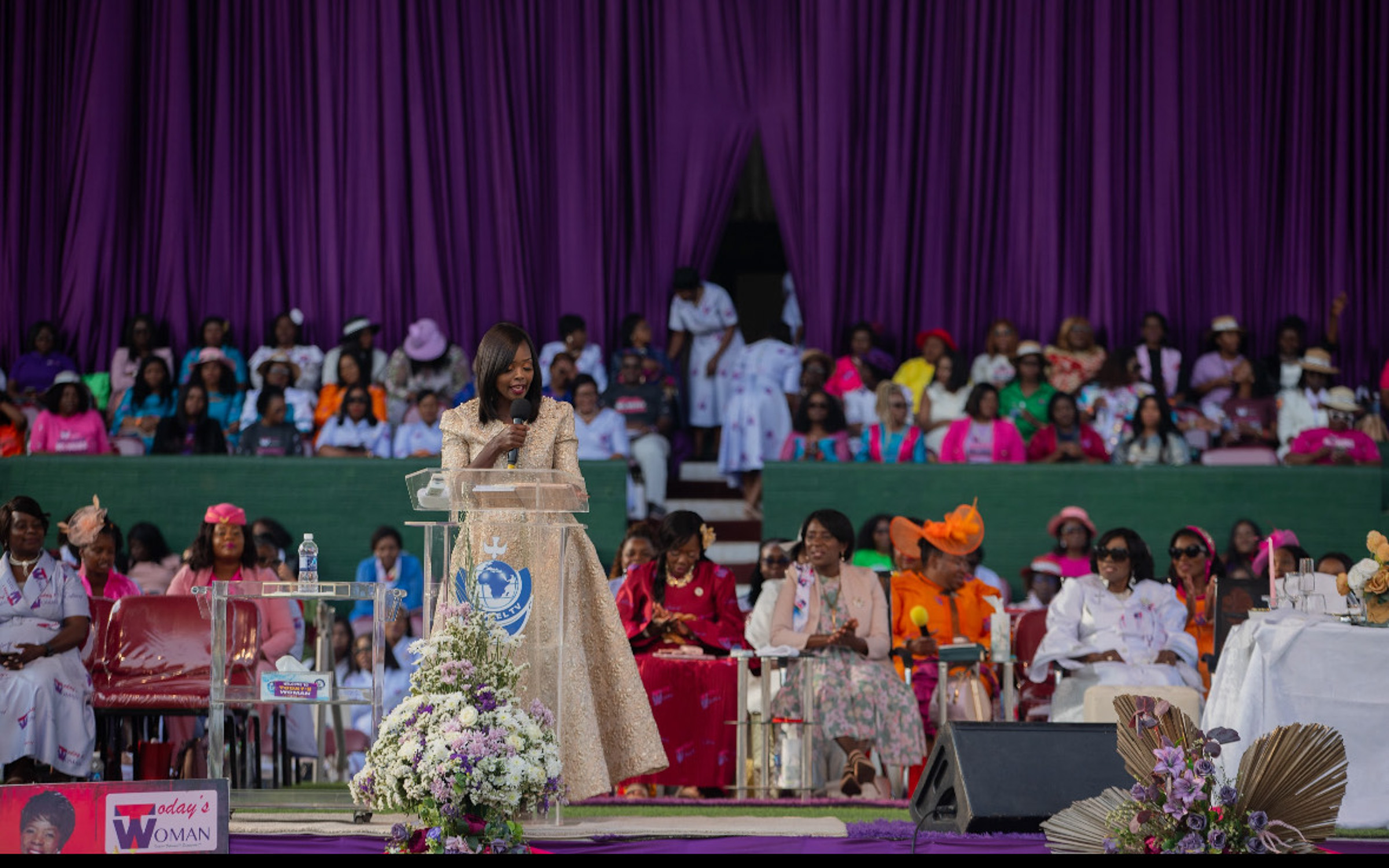
Fiona Arthurs M.A. ’15 addresses an audience.
The work of Fiona Arthurs M.A. ’15 is an example of the transnational, multi-faceted ministries that now characterize global Christian leadership. Born in Zimbabwe, Arthurs and her husband, Paul, have pastored since 2011 at the Wheaton Christian Center, a church that began meeting in 1977 in the east wing of Edman Chapel. As the couple conducted marriage ministry, they realized it would be beneficial for one of them to receive professional training. Arthurs took the plunge, becoming part of the second cohort of Wheaton’s Marriage and Family Therapy graduate program. “The Billy Graham Scholarship enabled me to be fully present in my studies without the stress of wondering how I was going to pay for it,” she said.
The community Arthurs serves is predominantly African Americans and people of color. There is a stigma in this community around seeking psychological services. “If you’re looking for mental health care, you’re crazy,” Arthurs said. “You’re not praying enough, believing enough.” But Arthurs has come to understand that Jesus came not just to heal our spirits and bodies. “He came to heal the broken-hearted, and that’s mental health.”
At Wheaton, Arthurs was equipped to integrate faith and psychology to bring a spiritual perspective to her community’s mental health challenges. She and her husband continue to offer counseling through their church. She also provides relatable, Christ-centered marriage and mental health resources to over 10,000 followers on various social media platforms.
Arthurs’s Wheaton training also opened opportunities to speak on connecting spiritual care and emotional health in her home country and beyond, from New Zealand to Canada. “Health is the whole person—mind, body, and soul,” Arthurs said. “We often neglect the soul, which is our command center.”
Aligning Ourselves with God’s Existing Work
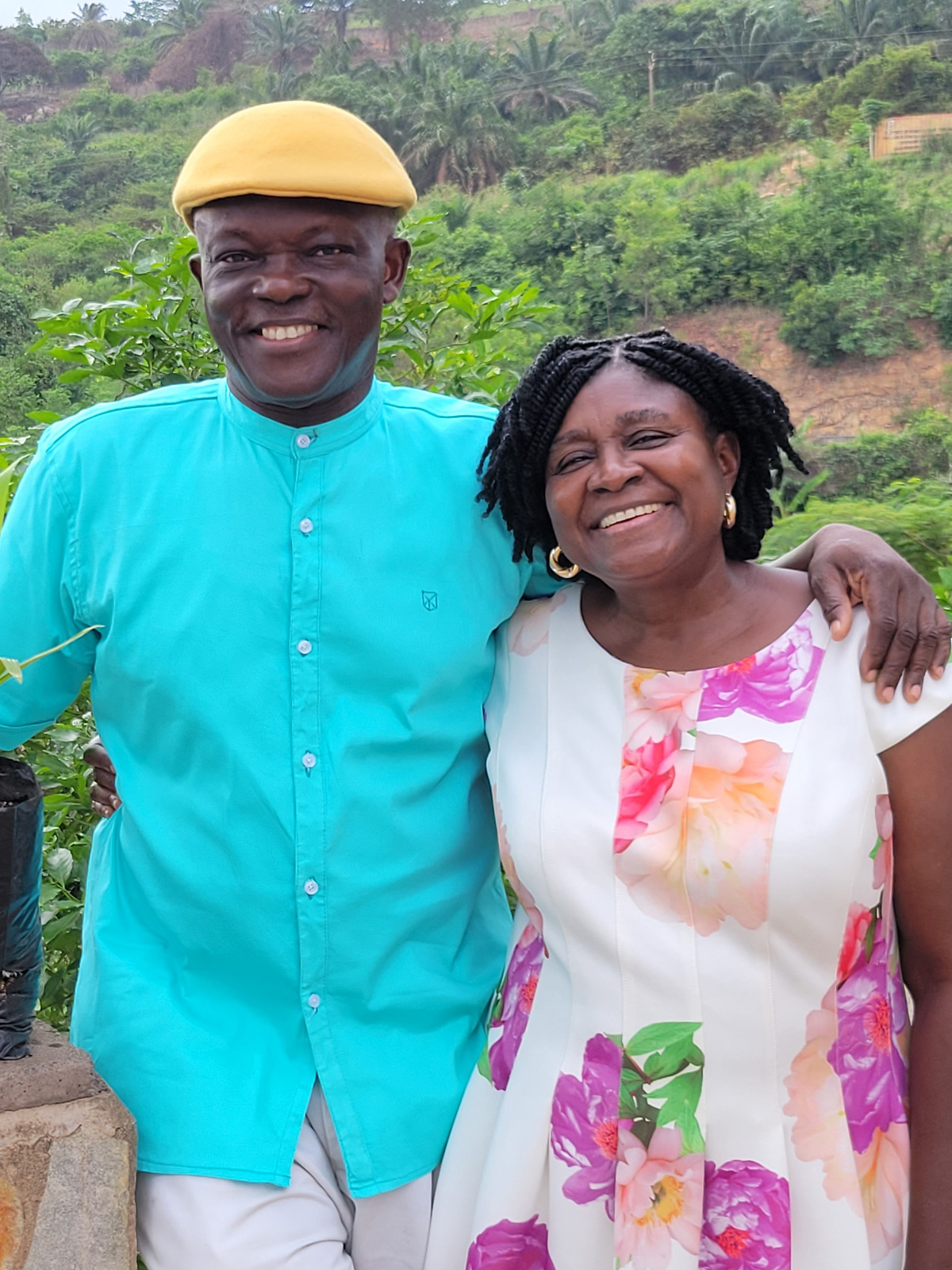
Dr. Femi Adeleye M.A. ’86 with his wife, Affy.
While global missions work keeps changing, Dr. Femi Adeleye M.A. ’86 cautions people who say that God is done with western missionaries. “God is never finished with any part of the world,” he said. “Westerners who feel called to any part of the world should still go in response to the Holy Spirit with passion.”
Adeleye studied Christian history and theology as a Billy Graham Scholar. “I grew up in Nigeria and thought that the church in Africa was all there was,” Adeleye said. “Being at Wheaton exposed me to the multicultural dimension of the church. It gave me a bigger picture of how the Holy Spirit was at work, sometimes in the least expected of places.”
After Wheaton, Adeleye stayed in Chicago and worked with international students before returning to his home country to lead the Nigerian student movement. He went on to complete further graduate studies at the University of Edinburgh and the Akrofi-Christaller Institute of Theology in Ghana, where he received his doctorate degree. Today, Adeleye serves as Executive Director of the Institute for Christian Impact, an initiative to challenge Africans to bring their faith to bear in all aspects of life. Based in Ghana, he also works as Africa Director for Langham Preaching and sits on the board of directors for the Lausanne movement.
Adeleye’s perspective has changed throughout the years. “Sometimes we think missionaries take Jesus to different locations,” he said. But when Adeleye reads the Scriptures, he sees that God goes ahead of all of us. Referencing Acts 8:26-40, he said, “Before Philip went to join the Ethiopian eunuch on the road to Gaza, the Holy Spirit was already at work in the life of that eunuch.”
Adeleye tells people this: “When you are called to go to a place for ministry or mission, find out what God is already doing in that context. Understand it, and align yourself with what God is already doing.”

